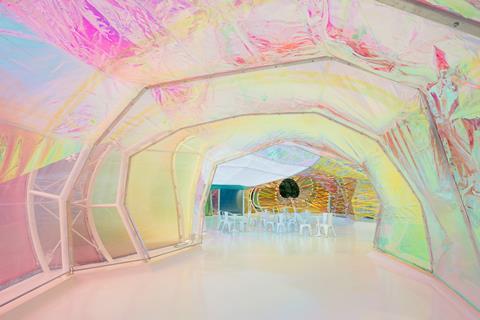Main pavilion will be designed by Bjarke Ingels’ firm BIG
The Serpentine Gallery has expanded its summer pavilion programme and lined up five architects to work on this year’s exhibition with Bjarke Ingels’ practice BIG chosen to design the main pavilion.
Along with the main 300sq m pavilion, four pop-up summer houses are also planned and will be designed by Asif Khan; veteran Hungarian-born, Paris-based Yona Friedman; Berlin and New York’s Barkow Leibinger; and former OMA architect Kunle Adeyemi from Nigeria.
The four smaller summer houses will each come in at 25sq m and have been inspired by William Kent’s 1734 Queen Caroline’s Temple – a classical style summer house which sits to the north of the main gallery. It is promised all will be no more than a minute’s walk from the main gallery building in London’s Kensington Gardens.
Ingels’ New York-based practice has increased its presence in the UK in the past 18 months after it was chosen to design a new public square at the redeveloped Battersea Power Station project.

This commission meant this was the last year the firm could have been chosen to design the main pavilion as the initiative’s selection criteria stipulates each architect is yet to build a permanent structure in England.
The expansion of the programme also marks the last hurrah for Serpentine director Julia Peyton-Jones who conceived the idea for the annual pavilion and is due to retire this year.
“All projects have been thrilling to commission and will be equally exciting to realise. We cannot wait to unveil them all this summer,” she said.
The designs are expected to be revealed next week with a planning application due to be submitted to Westminster city council towards the end of this month.
The Serpentine Gallery has already insisted it has no plans to end its annual pavilion commission when Peyton-Jones steps down later this summer after 25 years.
Among those who have worked on the commission during its 15 years have been Zaha Hadid, Rem Koolhaas, Herzog & de Meuron and Frank Gehry. Last year’s pavilion was designed by Spanish practice SelgasCano.
Source
This story first appeared on Building Design




























No comments yet